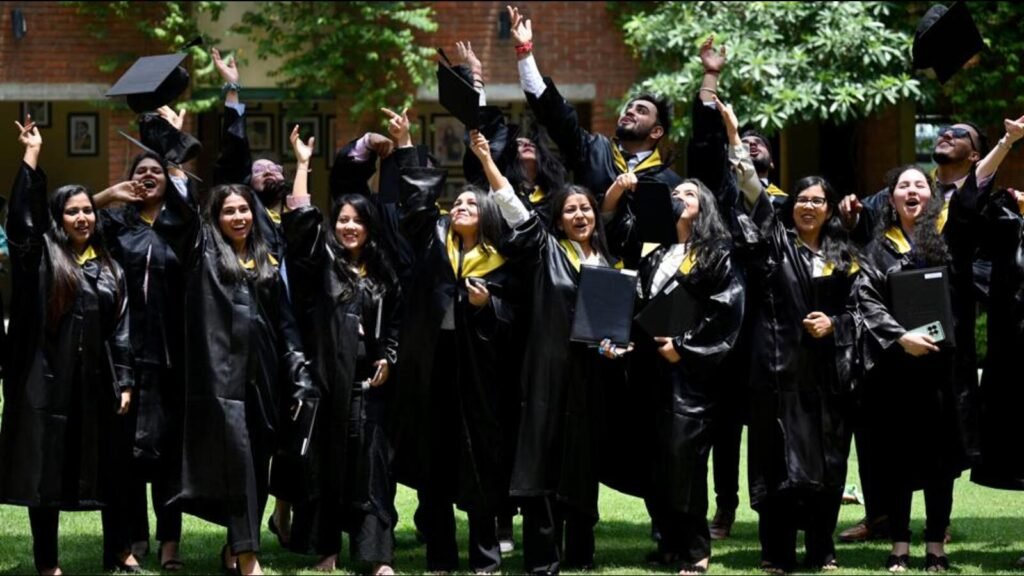
“You are years behind Gullu. He got his PhD last year and has become a professor in the government college.” My father has a knack for souring things early in the morning. The said Gullu, a dear acquaintance, is the latest stick daddy has found to beat his children with. This young man has suddenly acquired the Dr title and paid a hefty bribe to join the faculty of a government college. He has spent a lot of money for these educational and professional credentials that he really doesn’t need. He is wealthy, influential, and extremely personable. Most doors he cares about are open for him already. Why has he, then, bought this lie, I wonder.

Pierre Bourdieu once described education as the central mechanism through which cultural capital is transmitted and legitimised. When people fabricate, or buy, educational qualifications or inflate job titles, they are not merely telling personal lies. To lie about one’s degree is to engage in an act of mimicry within an economy of prestige.
The sociologist Erving Goffman, in The Presentation of Self in Everyday Lifeconceptualised social interaction as a kind of performance. Most of us try day and night to manage impressions that act as scaffolds to our fragile fictions of identity. Today, everything has become a brand — including the self — and logomania has gripped us. Think of it, perhaps, in terms of Guy Debord’s idea of the spectacle. The “well-educated” person is now a commodity, wrapped in institutional logos.
The degree is now a signifier of distinction to be displayed. But it’s not just the Gullus of mine mofussil who covets it. The Kittys and Does of the metropolis perhaps need it more because cities reward signaling better: there are bigger prizes, social and material, to be won. The authority of a degree is derived less from what was learned than from what it signals. Provocatively speaking, it’s the same as being “married well”. Funnily, marrying well also often depends on the fiction of the degree distinction.
This logic is nothing new. Lying on the résumé is even older. Greek historian Herodotus made up stuff to claim first-hand knowledge and, therefore, respect. Panchatantra is full of tales of people pretending to be virtuous and/or wise. Adi Shankaracharya’s Bhaja Govindam warns against fake gurus pretending to have spiritual credentials. Indians today buy degrees. Or take executive courses at prestigious universities and exaggerate them as post-graduate or research degrees. The former only signals wealth, but the latter signals gravitas. It allows the use of words like scholar, academic in one’s bio. A public display of intellectual refinement as a sign of superiority.
What is new, perhaps, is how the lie gets disseminated these days. Resume is pastSocial feeds are in. The fundamental lie about a degree sits comfortably beside our algorithm-mediated curated lives. Visibility substitutes substance. Symbolic validation has replaced intellectual labor as the real measure of value. An old classmate from university, now a colleague, once shared how her original work was strategically stolen by someone with whom she briefly shared a workshop module. The publicity material for the said workshop sidelined the academic and highlighted the pretender, a photographer. Why wasn’t the photographer happy with their original role and designation?
But why would they be? In a culture that has been steadily confusing formal education with intelligence and certification with virtue, what choice other than invisibility remains for them? What’s more perplexing is the same yearning in the privileged. One almost misses the time when socialites were just socialites. They led enviable lives, unencumbered by the need to lean on any intellectual crutches.
As Thorstein Veblen informed us, however, more than a century ago in Theory of the Leisure Classvery few things scream wealth louder than scholastic achievements in disciplines that are not immediately industry-oriented. Higher education that’s not aligned with a clear employment trajectory upholds what Veblen calls the leisure class’s “standard of virtue — archaism and waste”.
Therefore, even in the world of fake and bought degrees and honorifics, there’s a hierarchy. A foreign-bought degree in business from a not-so-familiar-sounding university probably inhabits the lowest rung, just like an undergraduate degree in any discipline in aspirational India.
The top rung belongs to the Gullus and Kittys because their “privilege” silences scrutiny and outright ridicule.
Nishtha Gautam is an author and academician. The views expressed are personal





